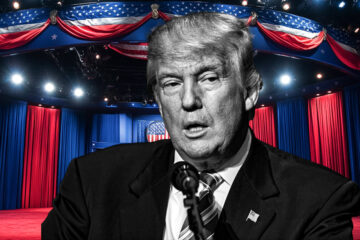North Carolina lawmakers have introduced a bill allowing the state treasurer to invest up to 10% in Bitcoin (BTC) and other qualifying digital assets.
House Bill 92, sponsored by Representative Destin Hall and Representatives Mark Brody and Steve Ross, qualifies any crypto with a market cap of over $750 billion during the 12 months preceding the potential investment as a qualifying digital asset.
Notably, only Bitcoin fits comfortably this requirement, as the threshold is over 2x higher than Ethereum’s (ETH) current $323 million market cap.
Additionally, the investment must happen through a regulated exchange-traded product (ETP).
Under the bill, North Carolina’s State Treasurer can invest in crypto through the General Fund, Highway Fund, and the 24 special funds under its supervision.
The Governor and Council of State will oversee the implementation of digital asset investments, and third-party investment managers handling digital assets must have at least $100 million in assets under management.
20 US states
North Carolina is the 20th US state to introduce Bitcoin reserve legislation. Last week, lawmakers in Montana and Florida introduced bills to establish Bitcoin reserves, adding to the growing number of US states integrating digital assets into their financial strategies.
Montana’s House Bill 429 proposes a special revenue account for investments in precious metals, stablecoins, and digital assets, requiring a minimum market capitalization of $750 billion.
The bill also mandates that these assets be held by a qualified custodian or via an exchange-traded fund (ETF). Up to $50 million from the state’s general fund can be allocated to this investment.
In Florida, a similar bill seeks to authorize the state’s Chief Financial Officer (CFO) to invest in Bitcoin, allocating up to 10% of public funds to the asset. The legislation positions Bitcoin as a hedge against inflation, citing its historical appreciation and increasing acceptance among sovereign nations and investment firms.
It also includes provisions for state agencies to accept Bitcoin payments while requiring conversion into US dollars for general revenue fund contributions.
Lawmakers in Maryland, Iowa, and Kentucky have also introduced bills to integrate Bitcoin (BTC) as a strategic reserve asset.
Kentucky House Bill 376, led by Representative TJ Roberts, would allow Bitcoin investments up to 10% of excess state funds, permit digital asset payments, and prohibit central bank digital currencies (CBDCs).
Maryland’s House Bill 1389, introduced by Representative Caylin Young, proposes a Maryland Bitcoin Reserve Fund, which gambling violation penalties would uniquely fund.
Meanwhile, Iowa’s House File 246, from Representative Taylor Collins, would enable the State Treasurer to invest in Bitcoin, stablecoins, and precious metals, with a 5% cap on public fund allocations.


 Bitcoin
Bitcoin  Ethereum
Ethereum  Tether
Tether  XRP
XRP  USDC
USDC  Solana
Solana  JUSD
JUSD  TRON
TRON  Lido Staked Ether
Lido Staked Ether  Dogecoin
Dogecoin  Figure Heloc
Figure Heloc  Cardano
Cardano  Wrapped stETH
Wrapped stETH  Bitcoin Cash
Bitcoin Cash  WhiteBIT Coin
WhiteBIT Coin  Wrapped Bitcoin
Wrapped Bitcoin  Wrapped eETH
Wrapped eETH  USDS
USDS  Binance Bridged USDT (BNB Smart Chain)
Binance Bridged USDT (BNB Smart Chain)  Monero
Monero  LEO Token
LEO Token  Chainlink
Chainlink  Coinbase Wrapped BTC
Coinbase Wrapped BTC  Stellar
Stellar  WETH
WETH  Ethena USDe
Ethena USDe  Zcash
Zcash  Canton
Canton  Sui
Sui  Hyperliquid
Hyperliquid  Litecoin
Litecoin  Avalanche
Avalanche  USD1
USD1  USDT0
USDT0  Hedera
Hedera  Shiba Inu
Shiba Inu  World Liberty Financial
World Liberty Financial  Dai
Dai  sUSDS
sUSDS  Ethena Staked USDe
Ethena Staked USDe  PayPal USD
PayPal USD  Toncoin
Toncoin  Cronos
Cronos  Rain
Rain  Polkadot
Polkadot  Uniswap
Uniswap  Mantle
Mantle  MemeCore
MemeCore 


